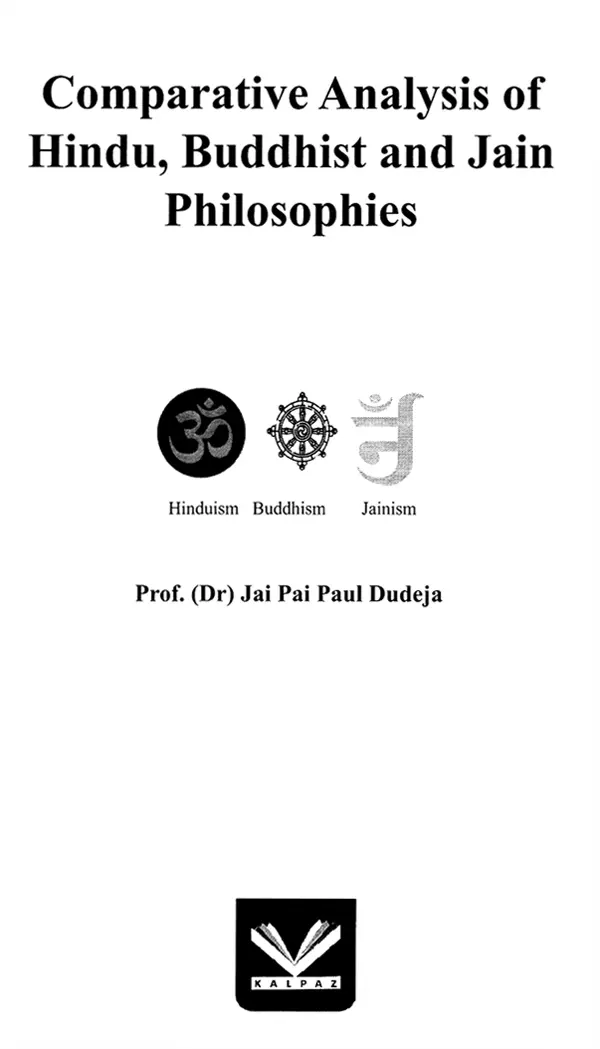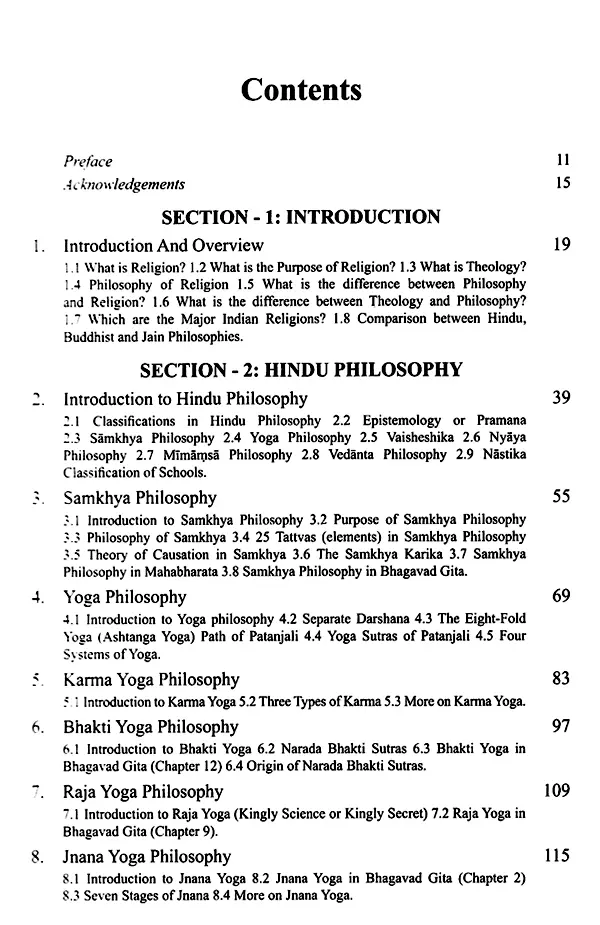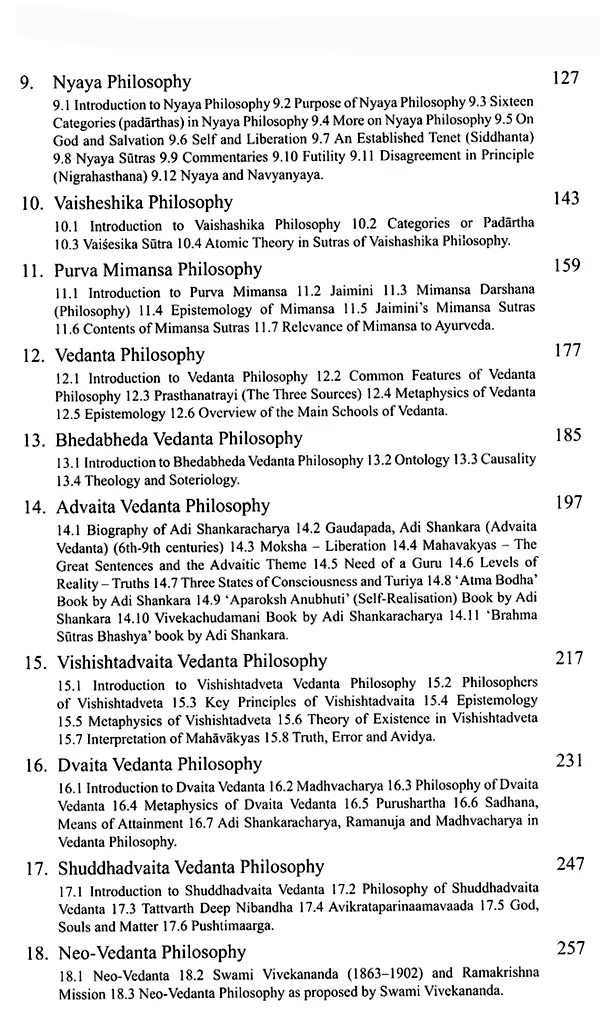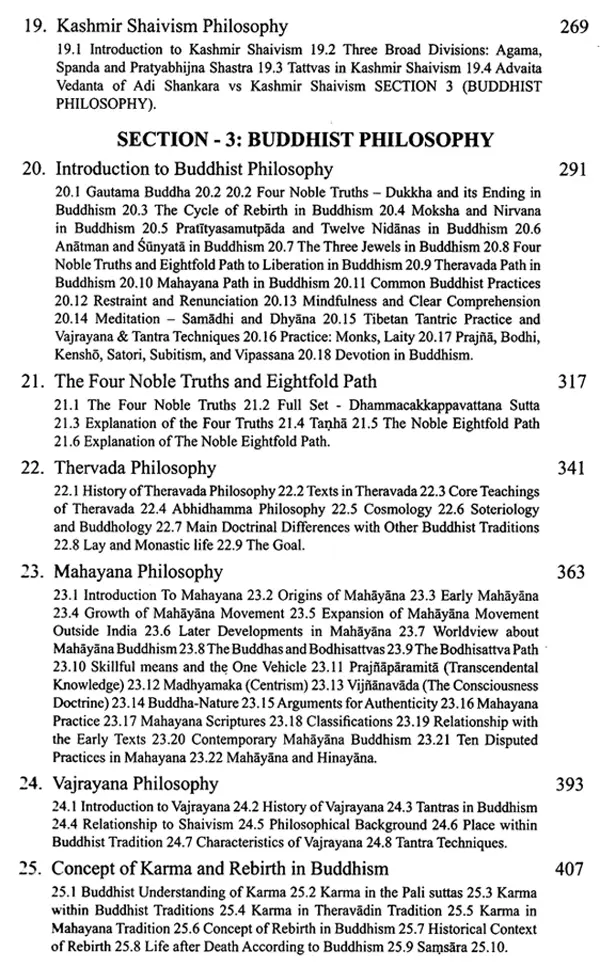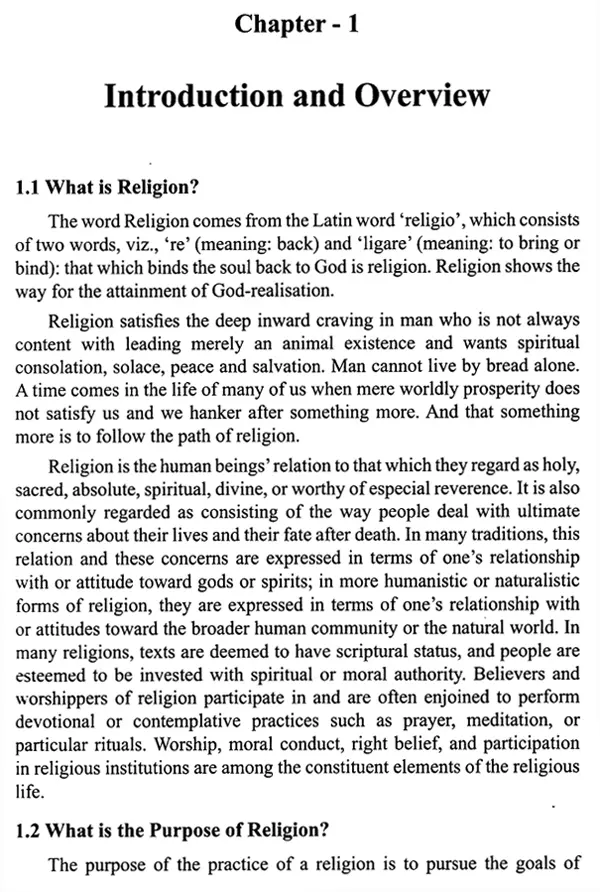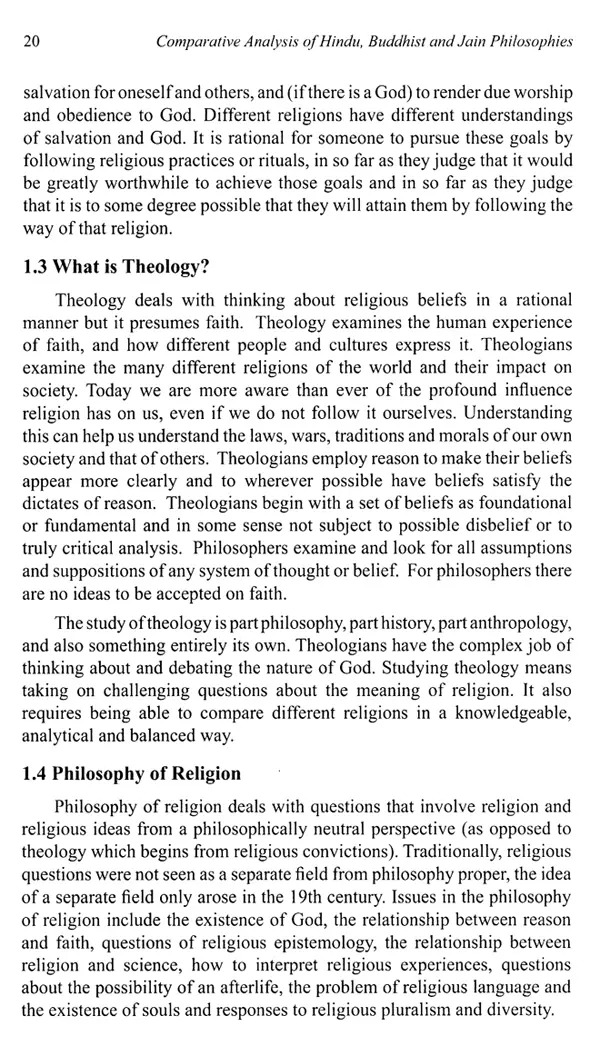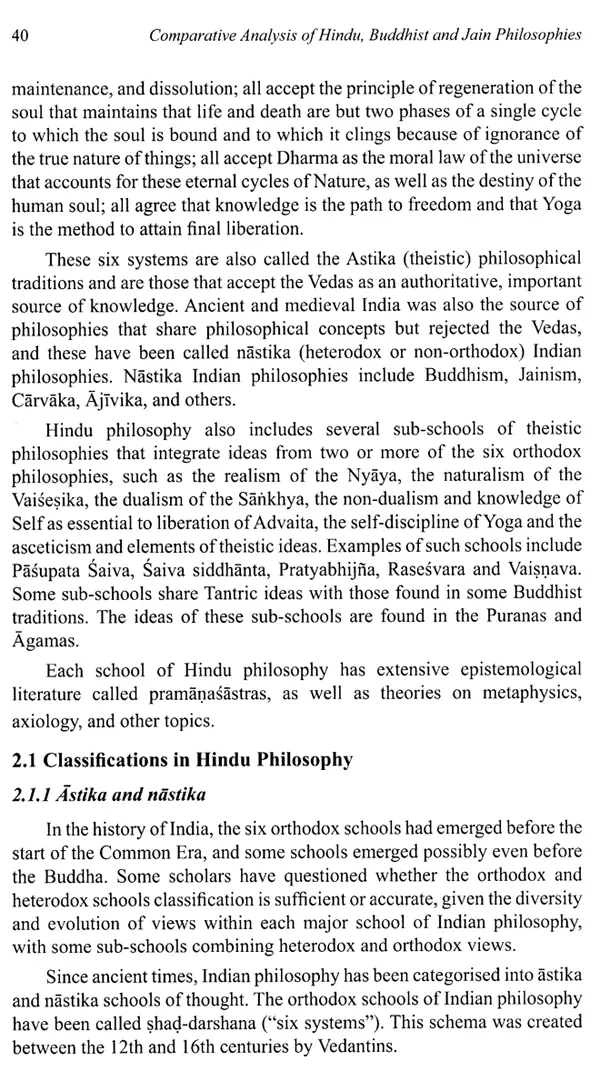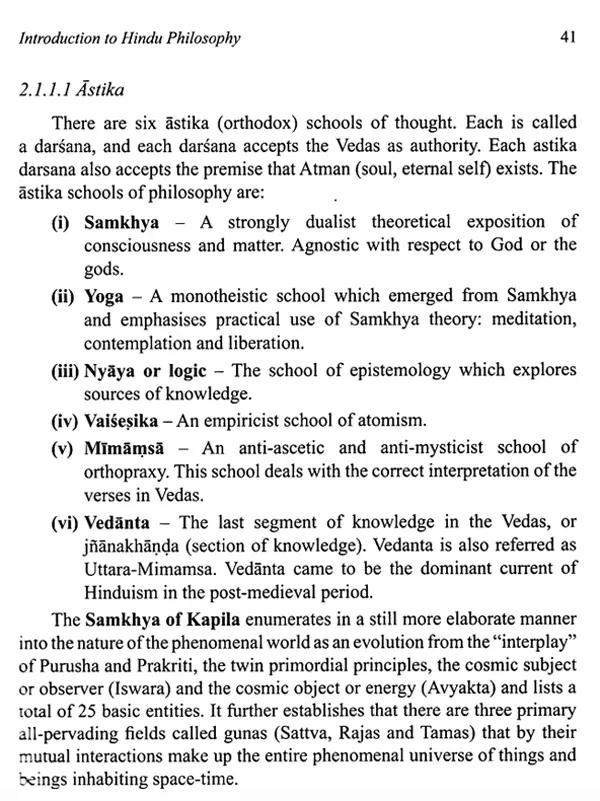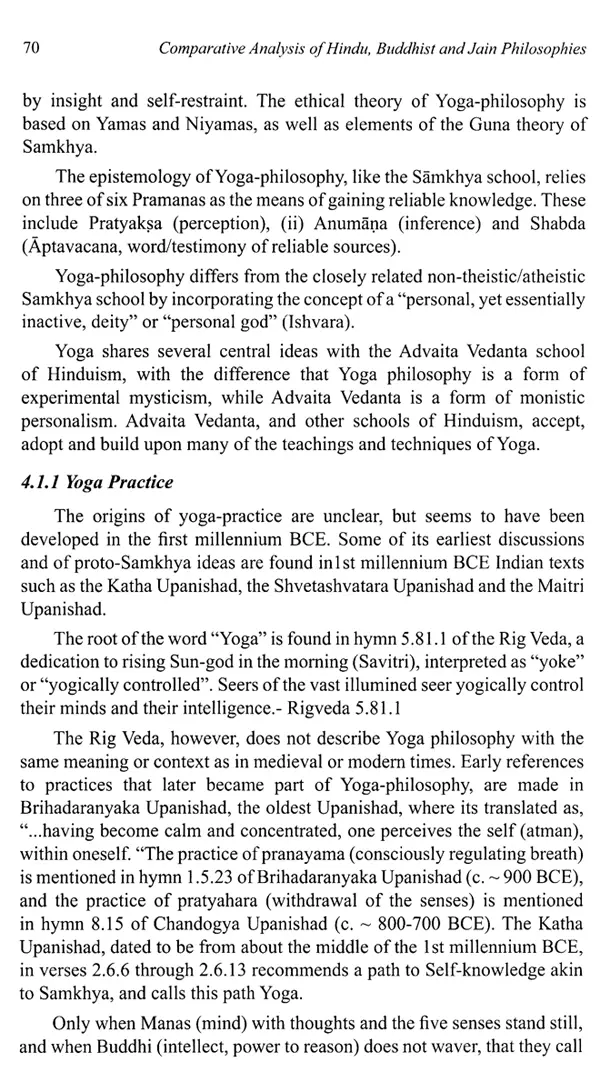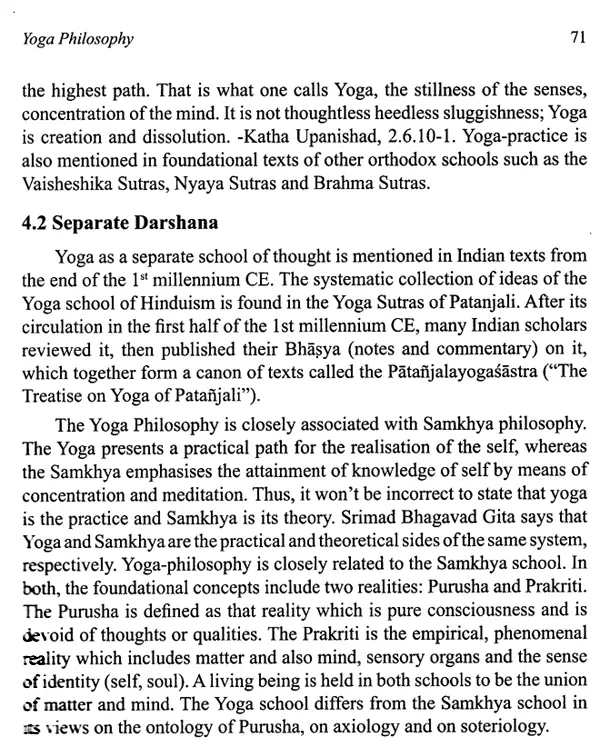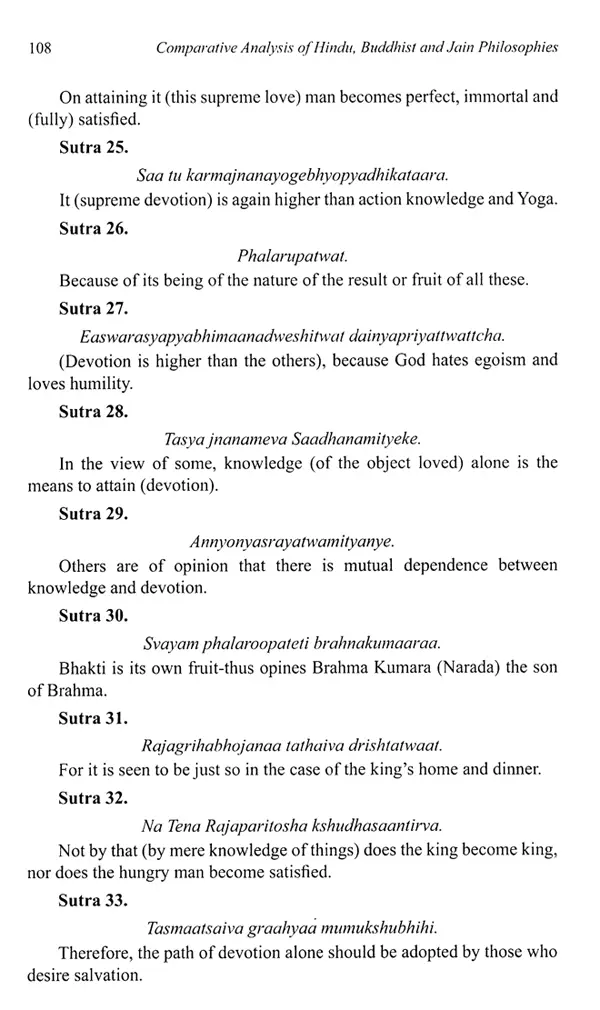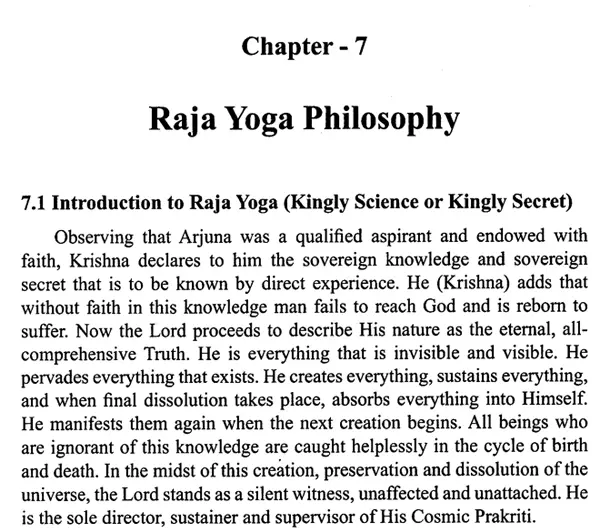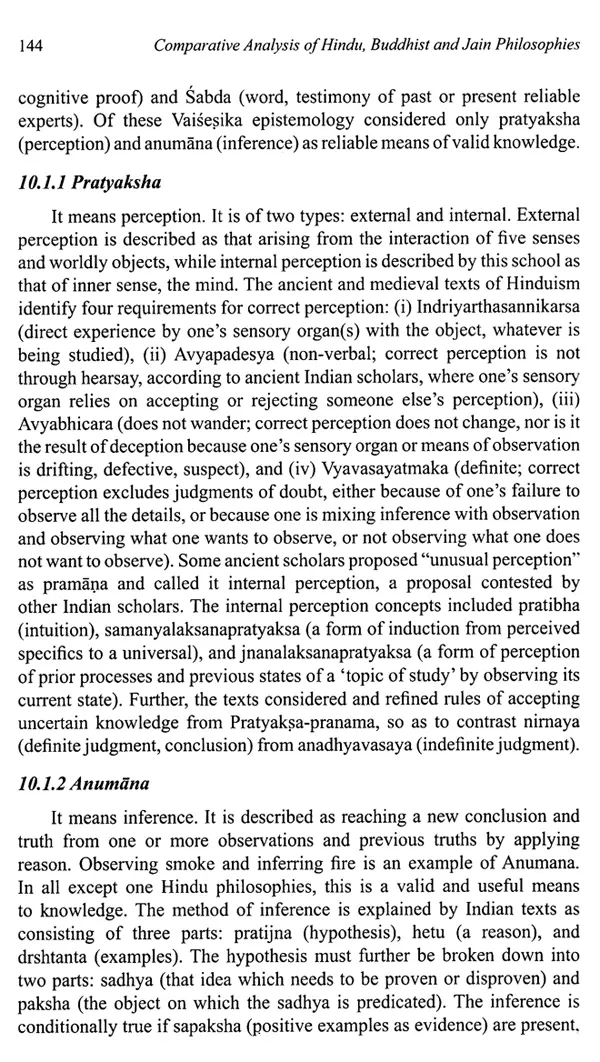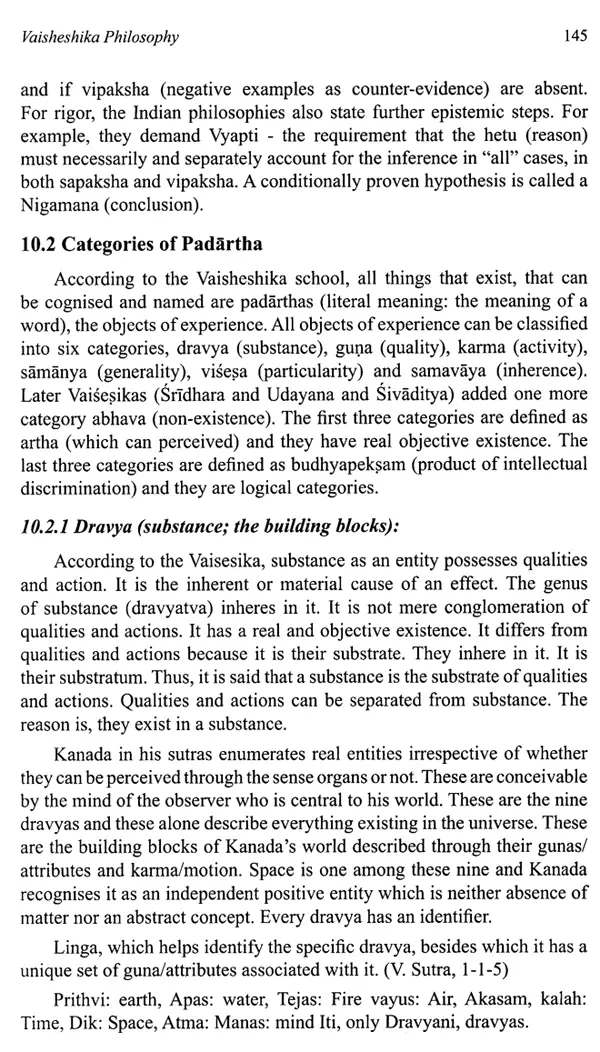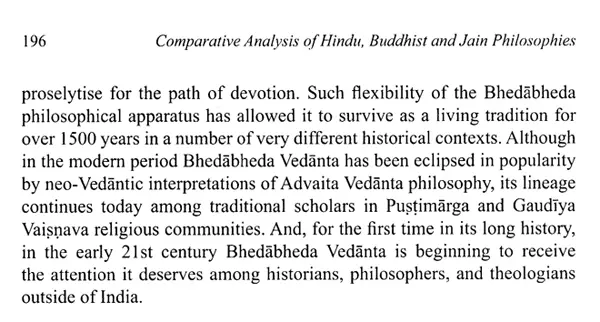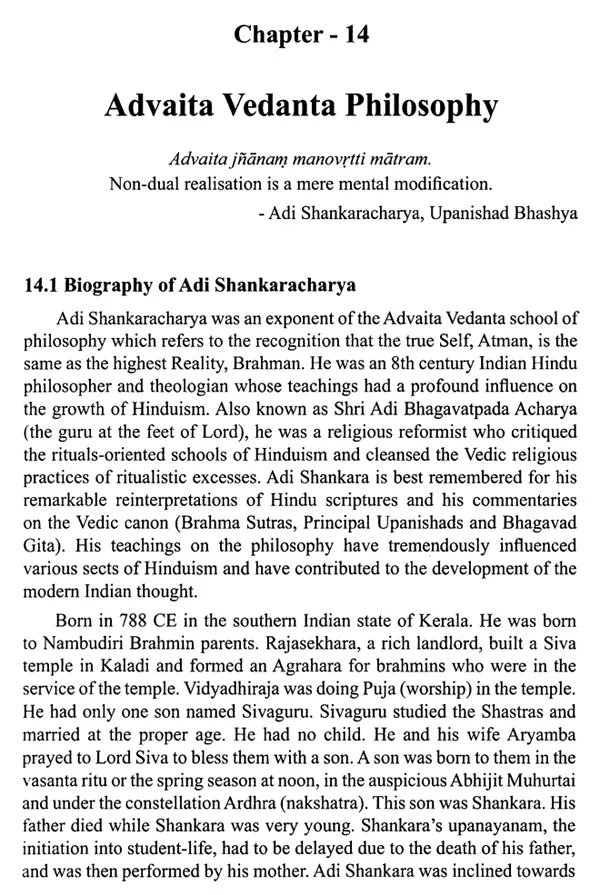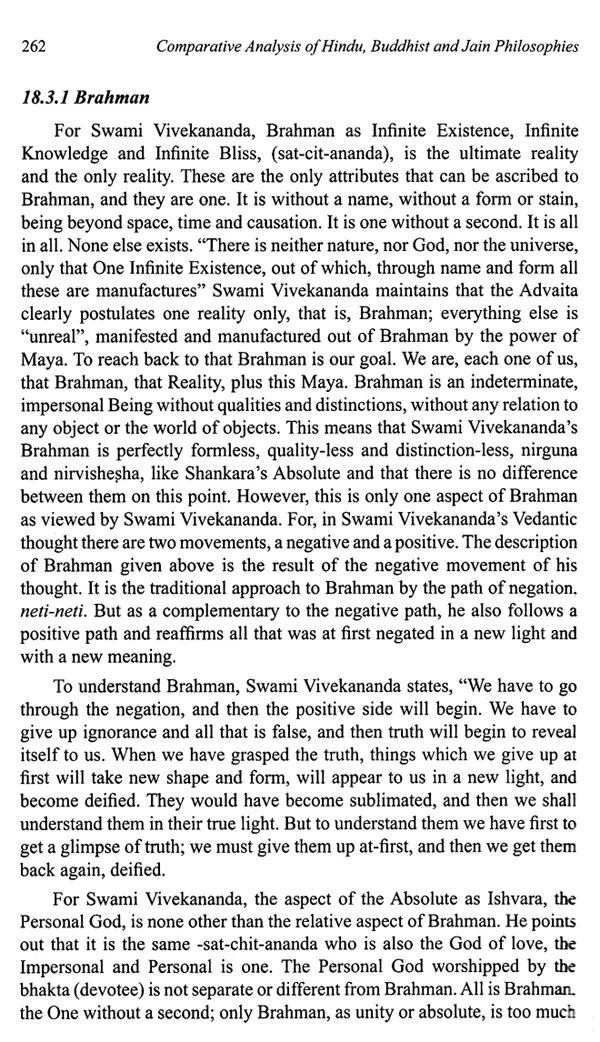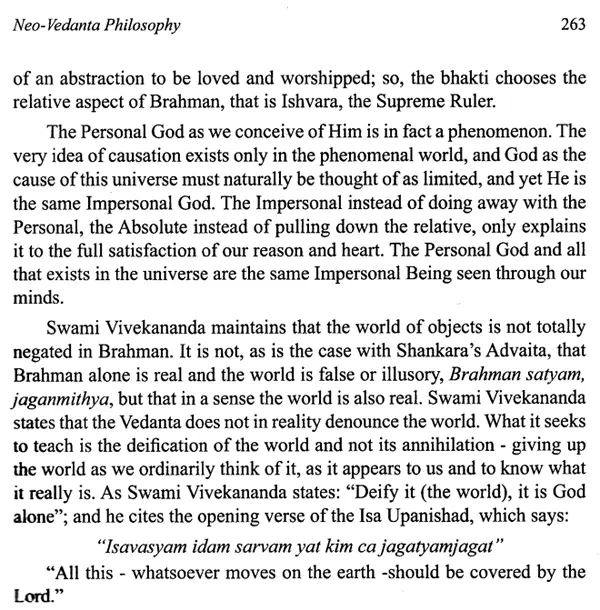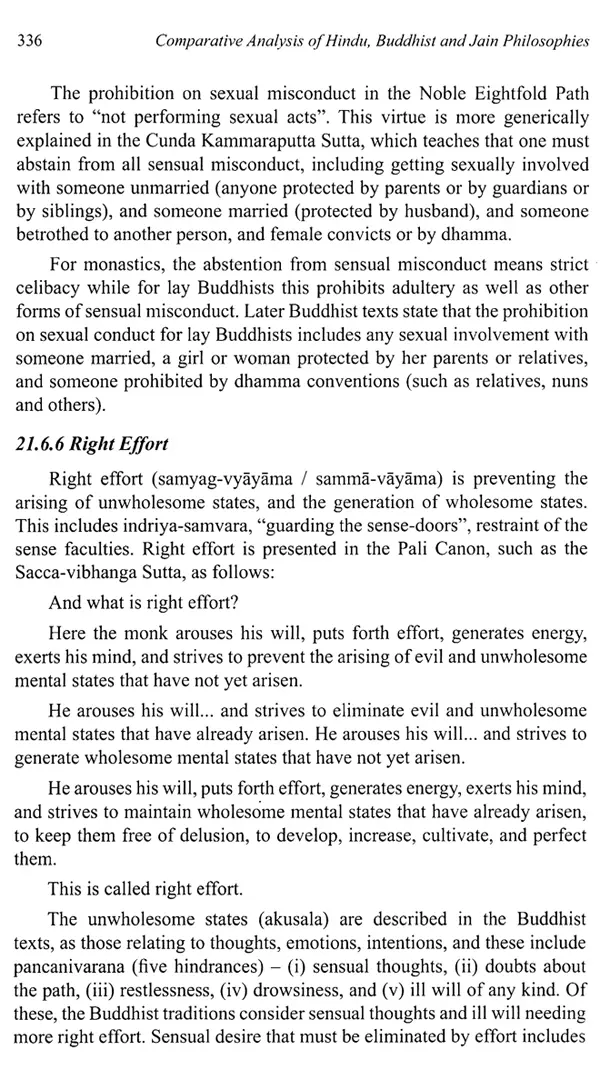
Comparative Analysis of Hindu, Buddhist And Jain Philosophies
Book Specification
| Item Code: | UBA717 |
| Author: | Jai Pai Paul Dudeja |
| Publisher: | Kalpaz Publications |
| Language: | English |
| Edition: | 2022 |
| ISBN: | 9789353249403 |
| Pages: | 586 |
| Cover: | PAPERBACK |
| Other Details | 8.50 X 5.50 inch |
| Weight | 640 gm |
Book Description
One can divide this voluminous book titled, “Comparative Analysis of Hindu, Buddhist and Jain Philosophies”, consisting of 37 chapters, into five broad sections. The first section (chapter 1) consists of 'Introduction'. The second section consisting of 18 chapters (chapters 2-19), deals with Hindu Philosophy. The third section, consisting of 8 chapters (chapters 20-27) describes the Buddhist Philosophy. The fourth section, consisting of 8 chapters (chapters 28-35) deals with Jain Philosophy. The fifth and the final section, consisting of 2 chapters (chapters 36-37) compares the philosophical aspects (similarities and differences) between these religions. The author sincerely believes that a book of this nature comparing the similarities and differences between the three major Asian religions (that is, Hinduism, Buddhism and Jainism) will add to the value and knowledge of the eager readers. It will be useful as a text book for the students, a reference source for the research scholars studying comparative philosophies of religions, and finally to a large section of general readers across the globe.
Prof. (Dr.) Jai Paul Dudeja (born in June, 1948) has been in regular employment as a Scientist, Professor, Dean, Director, Principal and a Senior Administrator in various educational institutions, universities, laboratories, public and private organizations. He superannuated as a Senior Scientist in May 2008 from the Defence Research and Development Organisation (DRDO), Government of India. After DRDO, he served for over 11 years, till his last posting as a Director at Amity University Gurgaon, from where he retired in Nov 2019. Till date, Dr. Dudeja has published/ presented about 90 research papers in various national and international journals/conferences. Out of these, 21 research papers are on spirituality and consciousness etc. Besides this, he has authored following eight books on spirituality: 1. Gayatri Mantra: A GPS to Enlightenment, 2. Maha Mrityunjaya Mantra: An Invincible Armour for Conquering Death 3. Ajapa-Japa Sohum-Humsa Mantra: An Eternal Mantra for Inner Consciousness 4. The Third Eye: A Spiritual Laser for Stimulating Inner Awakening 5. Quantum Physics of Consciousness and Non-Duality In Eastern Philosophy 6. Quantum Science of Love, Healing, Happiness, and Bliss in Ancient Wisdom 7. Chakras Healing and Kundalini Awakening by Yogic Techniques, 8. Meditation Practices across the Globe and their Beneficial Effects. Dr. Dudeja has delivered many invited lectures in international conferences on Spirituality in India and abroad.
Dear Readers,
I am extremely happy to see this book titled, "Comparative Analysis of Hindu, Buddhist and Jain Philosophies" in your hands. It is my firm belief that you have chosen to read this book with a specific aim in mind, and I assure you that you will not be disappointed.
One can divide this voluminous book consisting of 37 chapters, into five broad sections. The first section (chapter 1) consists of 'Introduction'. The second section consisting of 18 chapters (chapters 2-19), deals with Hindu Philosophy. The third section, consisting of 8 chapters (chapters 20-27) describes the Buddhist Philosophy. The fourth section, consisting of 8 chapters (chapters 28-35) deals with Jain Philosophy. The fifth section, consisting of 2 chapters (chapters 36-37) compares the philosophical aspects (similarities and differences) between these religions.
Chapter 1, titled "Introduction and Overview" gives an overview of the entire book. Readers are advised to go through this chapter in order to get a flavour of the rest of the book.
As discussed earlier, Section-2 is on "Hindu Philosophy" and is discussed in chapters 2-19.
Chapter 2, titled "Introduction to Hindu Philosophy" classifies six schools of Indian philosophy: Samkhya, Yoga, Vaisheshika, Nyaya, Mīmāmsā, and Vedanta Philosophy. Each of these six philosophies are discussed in the subsequent chapters.
Chapter 3, titled "Samkhya Philosophy" describes this philosophy in detail.
Chapter 4, titled "Yoga Philosophy" is a detailed coverage of this topic. Subsequent four chapters describe each of the four systems of Yoga. Chapter 5, titled "Karma Yoga Philosophy" describes this philosophy in detail. Chapter 6, titled " Bhakti Yoga Philosophy" is a detailed coverage of this topic. Chapter 7, titled "Raja Yoga Philosophy" describes this philosophy in detail; and finally Chapter 8, titled "Jnana Yoga Philosophy" is a detailed coverage of the fourth system of Yoga.
